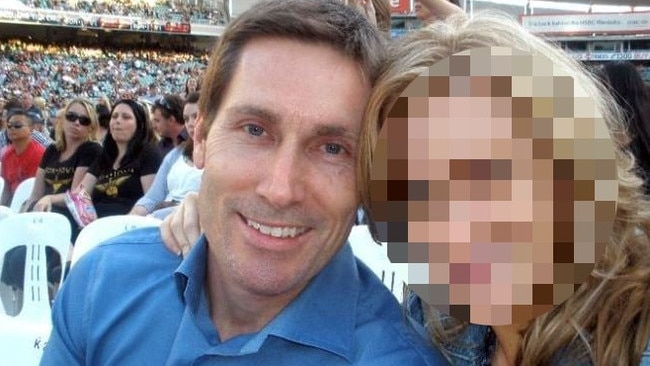BCU CEO Lyndon Allen Kingston jailed after being found guilty of financial dishonesty crimes
A former credit union CEO will spend the next six months behind bars after gaining about $140,000 from making “informal agreements” with a consultant and contractor.

Police & Courts
Don't miss out on the headlines from Police & Courts. Followed categories will be added to My News.
A former credit union CEO will spend the next six months behind bars for his dodgy financial dealings, in what a judge has labelled a “significant fall from grace” from his humble beginnings and respected career heights.
Former Director and CEO of Bananacoast Community Credit Union (BCU) Lyndon Allen Kingston is set to serve six months in jail after he was sentenced in Brisbane’s District Court on Tuesday.
The 57-year-old was found guilty at trial last month of two counts of dishonestly using his position with the intention of gaining an advantage, and two counts of providing misleading information to an auditor.
The court was told Kingston had committed the offences over an 18 month period in 2016 and 2017 while working as CEO at BCU.
Judge Carl Heaton KC said Kingston had gained a total of approximately $140,000 after making “informal agreements” with a consultant and contractor through his dealings at BCU.
The first arrangement involved Kingston authorising the payment of four invoices totalling over $80,000 from BCU to a consultant, Judge Heaton explained in his sentencing remarks.
But he said Kingston hadn’t disclosed to BCU that he had made prior arrangements with the consultant to pay nearly fifty per cent of the payments back to him personally.
“Your failure to disclose this arrangement, despite clearly knowing that you should, leads irresistibly to the conclusion that your state of mind was a dishonest one,” Judge Heaton said.
“That is, you dishonestly used your position as the CEO and director of BCU with the intention to directly or indirectly gain an advantage to yourself.”
Judge Heaton said the second, and more serious of the arrangements, involved Kingston entering a contract with a company who BCU paid $385,000.
“In fact $120,000 was added to this contract to the actual fee for service,” Judge Heaton said.
He said Kingston had a further agreement with the company to pay him $10,000 each month via a smaller company as a “strategy” to receive money, which Kingston claimed was owed to him by BCU, in a “tax effective way”.
Kingston referred to it as a “salary sacrificing strategy” in correspondence with the company he contracted, and falsely claimed he had BCU’s approval for it.
Defence barrister Mark McCarthy submitted that this had been Kingston’s strategy to obtain unpaid remuneration legitimately owed to him by the company, but Judge Heaton said he was satisfied beyond reasonable doubt that it had not been a legitimate strategy.
“(It) was instead an intentional exploitation of your position to dishonestly gain a benefit,” Judge Heaton said.
Kingston further failed to make disclosures concerning the two arrangements to BCU auditors, the court was told.
Judge Heaton noted Kingston had prior experience as an auditor with APRA, and “cannot have failed to appreciate the significance of (his) omission”.
The court heard Kingston’s employment with BCU was terminated in late 2017, and his marriage dissolved in the years following.
Mr McCarthy said his client had worked his way up to CEO from “humble regional beginnings” – but was now “cut off” from the industry now due to his offending.
Mr McCarthy said Kingston had obtained some consultancy work since being charged, but “effectively has no future in the industry”.
A psychologist’s report suggested Kingston displayed symptoms in line with major depressive disorder and a lack of motivation.
Mr McCarthy submitted there was no need for his client to spend any time in actual custody, as there was no suggestion BCU was out of pocket as a result of the offending.
He submitted his client had suffered significant consequences as a result of his actions and posed little to no risk of reoffending.
Judge Heaton took into account Kingston’s prior standing in the business community, saying his offending represented a “significant fall from grace”.
“I’m confident that the lessons learned as a result of your offending and your convictions will provide a powerful incentive for you to return to a law abiding life,” he said.
Judge Heaton also acknowledged that a sentence of imprisonment would impact upon Kingston’s two daughters, who he shared custody of.
He further noted this was Kingston’s third trial for the same charges, after issues in the first two trials outside of Kingston’s control resulting in mistrials.
But Judge Heaton said general deterrence was particularly important in this case, and the sentence needed to reflect that.
He said immediate release would “fail to properly reflect the seriousness of (Kingston’s) offending, the circumstances of it, and the need for a penalty which carries a tangible general deterrent effect.”
Kingston received a head sentence of 18 months imprisonment, with release after six months jail under a $1000 good behaviour recognisance.


